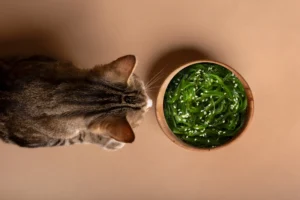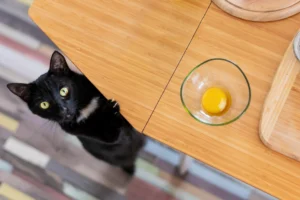Disclaimer: Always check with your vet on what “human topical treatments” your cat can and cannot use as information may vary based on their medical needs and health conditions.
Cats are naturally curious creatures who love getting their noses and paws into anything and everything that catches their eye. As a result, they may end up with some cuts, scrapes, bruises or symptoms of allergies from their little adventure.
As pet parents, whenever our pets appear to be a little injured or sick we would try our best to solve their issues as soon as we possibly can. This includes, reaching into our human medicine cabinet and Googling if certain ointments and medications are safe for pets.
Here are some situations where you should NOT be using human topical creams on your cat:
The cream contains harmful ingredients
like menthol, salicylic acid, or fragrances that can be toxic to cats when ingested or absorbed through their skin.
The cream is designed for specific purposes
like dry skin, acne, or rashes, which may not be suitable for your cat's specific skin issues, leading to irritation or adverse reactions.
The cream is scented or has chemicals
as cats are more sensitive to fragrances and chemicals, and human products may cause respiratory issues, skin irritation, or allergic reactions in cats.
The cream is not veterinarian-approved for animals
as some human creams might have high concentrations of active ingredients that are too strong for cats.
Your cat has a wound or injury
because cats often lick or groom themselves, and applying human creams to wounds can lead to ingestion of harmful substances or infection.
Your cat has sensitive or irritated skin
as human products can worsen skin irritation, leading to further discomfort, allergic reactions, or infections.
Your cat has underlying health conditions
like liver or kidney issues, or other health problems, and may not process the ingredients in human creams effectively, which could cause harm.
For safe and effective treatment, it’s best to consult your vet to get topical products formulated specifically for pets.
Read on to learn whether we should be using human topical creams on our cats and which is safe or will do more harm than good.
Table of Contents
1. Bepanthen
Is Bepanthen safe for cats?
Bepanthen (containing dexpanthenol) is generally considered safe for cats when used on small, superficial wounds or dry, irritated skin.
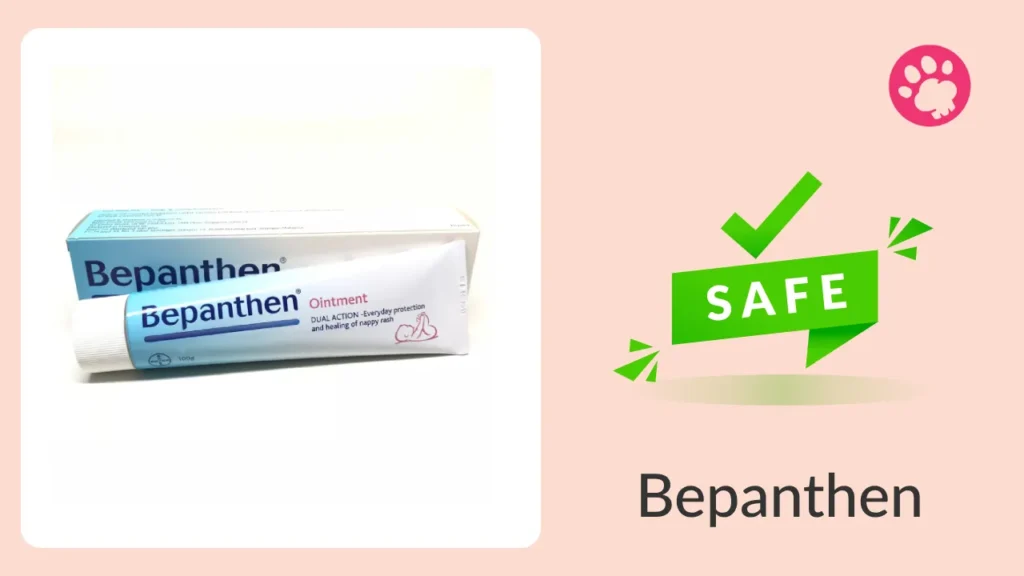
However, there are a few important precautions:
Prevent licking
Cats may ingest the cream while grooming, which can cause mild stomach upset or, in rare cases, complications.
Avoid deep wounds
It’s unsuitable for open or infected wounds unless directed by a vet.
Use sparingly
Apply only a thin layer and monitor for skin reactions.
Always consult your veterinarian before using Bepanthen to ensure it’s appropriate for your cat’s specific condition.
2. Bacitracin
Is Bacitracin safe for cats?
Bacitracin is generally considered safe for cats in small amounts and for minor, superficial wounds, but it should only be used under a veterinarian’s guidance. Cats often lick themselves, so ingestion of any ointment can be risky.
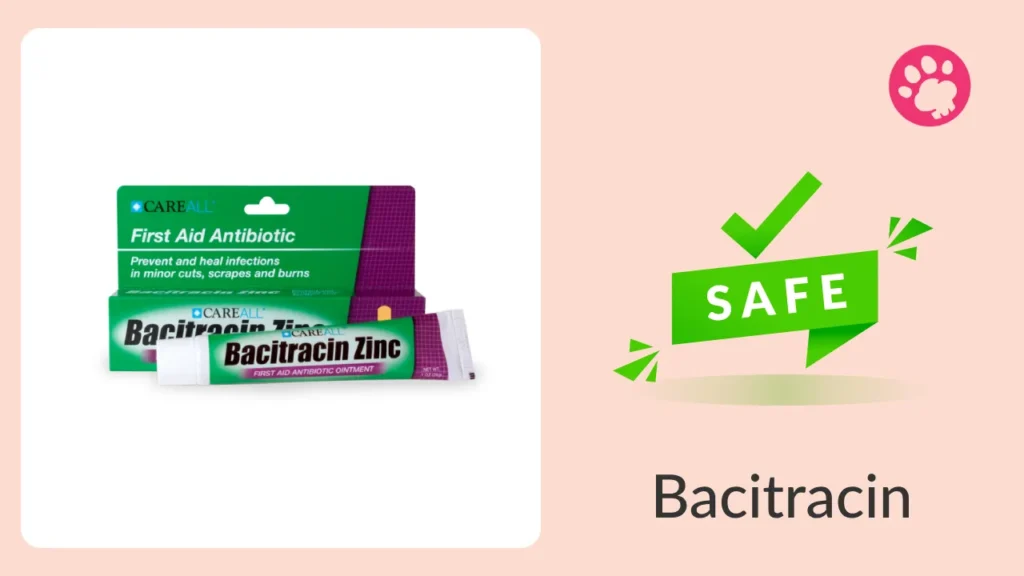
However, if Bacitracin is combined with other ingredients like neomycin or polymyxin B (as in triple antibiotic ointments), it may pose a higher risk of allergic reactions or toxicity.
3. Neosporin
Is Neosporin good for my cat?
Neosporin (which contains neomycin, polymyxin B, and bacitracin) is generally safe for cats in small amounts for treating minor wounds or cuts, but it should only be used with caution and under the guidance of a veterinarian. While the individual ingredients are typically not toxic to cats in small amounts, it should not be used for deep or infected wounds and for prolonged periods as it could lead to resistance to the antibiotic components.
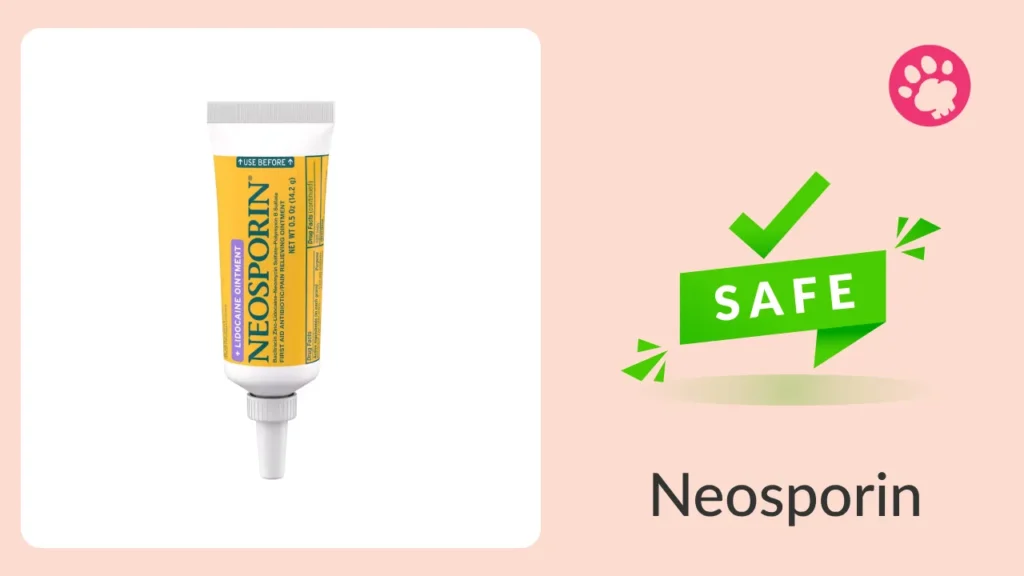
As some cats may be allergic to one of the ingredients (potentially causing irritation and worsening the wound), it’s best to consult your vet for a proper diagnosis and treatment. There are pet-specific antibiotics or antiseptic creams designed to be safe for cats.
4. Vaseline
Is Vaseline safe for cats?
Vaseline (petroleum jelly) is generally safe for cats in small amounts and can be used for certain purposes.
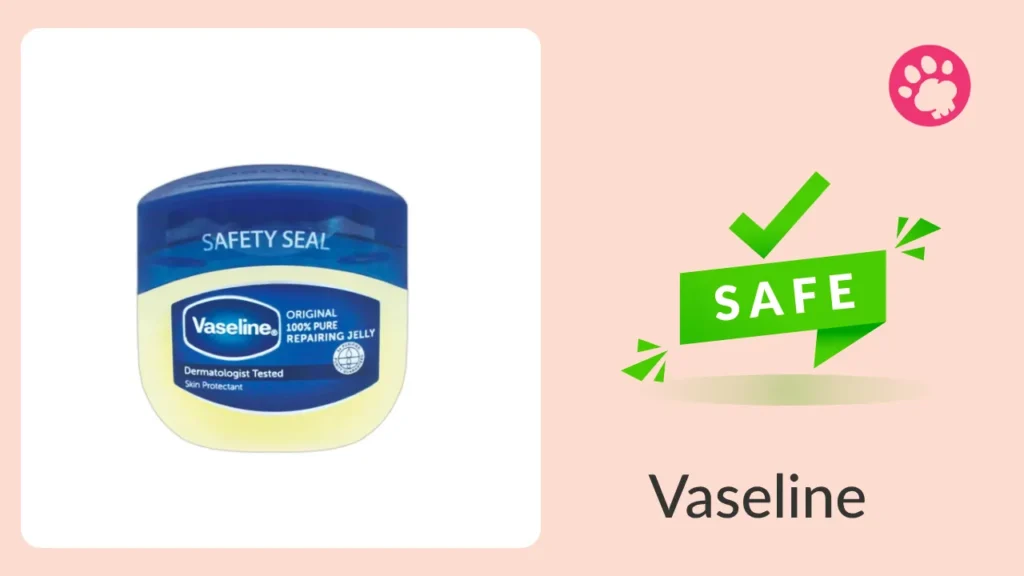
What can you use Vaseline for:
Moisturising dry or cracked skin, nose and paws
Removing hairballs by lubricating the digestive system
It should never be used on open wounds as it may trap bacteria and moisture inside.
Always use it with caution and monitor your cat to prevent excessive licking. If in doubt, consult your vet before applying Vaseline or any other topical treatments.
5. Povidone Iodine
Is Povidone Iodine safe for cats?
Povidone-iodine (commonly known as Betadine) is generally safe for cats when used properly and in diluted form. It is an effective antiseptic that can be used to clean wounds, cuts, or skin infections.
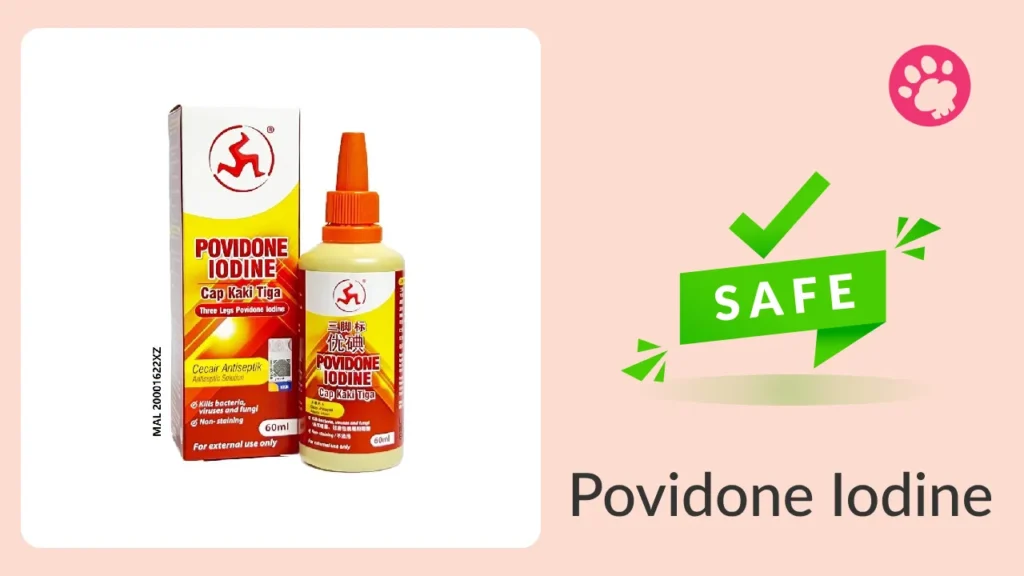
Important guidelines to follow:
Dilution
It should always be diluted to a 0.1% concentration (about 1 part Betadine to 10 parts water). Undiluted povidone-iodine can irritate the skin.
Avoid ingestion
Cats are likely to lick their wounds, so monitor them after applying to avoid ingestion, which can cause stomach upset or other issues if consumed in large amounts.
Use on minor wounds
Povidone-iodine is generally safe for minor cuts and abrasions but should not be used on large or deep wounds without veterinary advice.
If in doubt, always consult your vet to ensure proper treatment and safety.
6. Cortisone (hydrocortisone)
Is Cortisone safe for cats?
Cortisone (and its derivative, hydrocortisone) can be safe for cats in small, carefully controlled amounts but only when prescribed or approved by a veterinarian. Over-the-counter cortisone creams for humans are typically not recommended for cats.
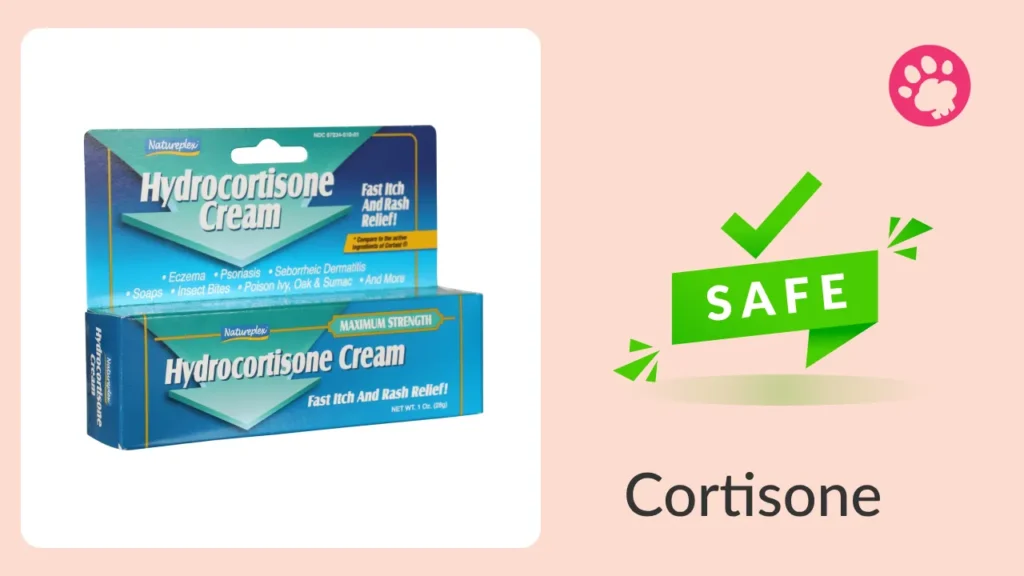
Reasons cortisone might not be recommended for cats:
- Toxicity risk: cats may lick the cream off, potentially ingesting harmful ingredients.
- Overuse complications: long-term or excessive use can cause skin thinning, adrenal suppression, or other systemic effects.
- Inappropriate formulation: human products may contain other harmful additives like fragrances.
If your cat has itching or inflammation, consult your vet for pet-safe corticosteroid creams or oral treatments that are specifically formulated for cats.
How Petchef helps avoid health issues for your cat
When it comes to itchiness, rashes, hot spots and other skin problems, many of those are attributed to negative and/or allergic reactions to artificial ingredients in commercial cat food, especially kibbles.
Which is why at Petchef, we ensure that all the ingredients that go into our cat food recipes are made of fresh, clean ingredients only! All the meals tailored for cats contain:
80%+ meat (chicken, buffalo, beef, salmon, tuna, duck, etc)
10%+ freshly cooked moisture
7% veggies, herbs and oils
It’s completely free of preservatives, additives, fillers and grains! If you’d love for your cat to eat the food they were born to eat, come have a chat with our friendly pet nutritionist to find the ideal meal for your pet. Or sign up on our site directly and order a batch of food for to try for 2 weeks.
7. Clotrimazole
Is Clotrimazole good for cats?
Clotrimazole is not generally safe for cats unless specifically prescribed by a veterinarian. This antifungal cream, commonly used for conditions like athlete’s foot or yeast infections in humans, can cause irritation, allergic reactions, or toxicity if a cat ingests it while grooming. Cats are very sensitive to many medications, and clotrimazole can be harmful if misused.
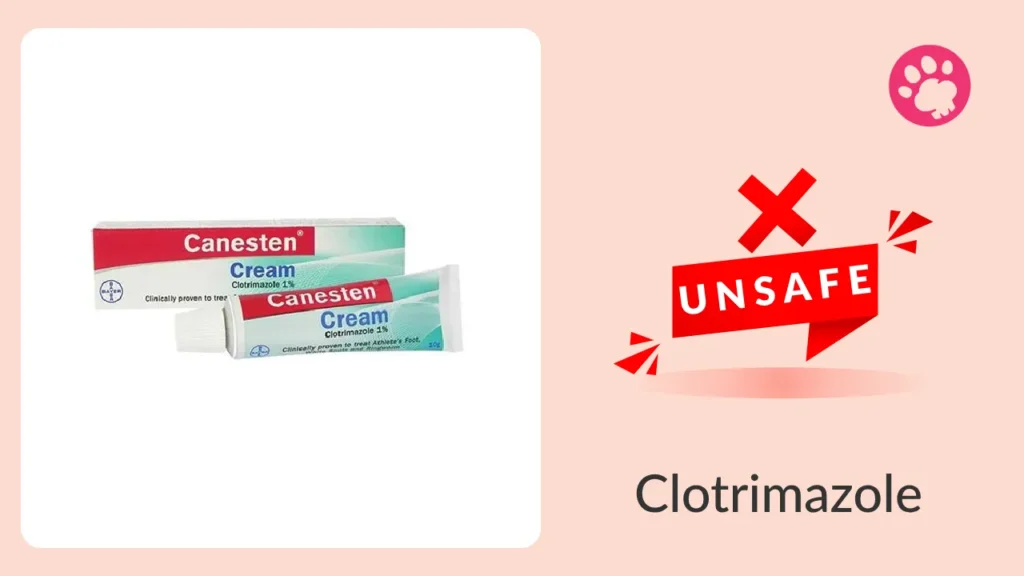
Some cat-safe alternatives that may be prescribed by your vet include:
Miconazole
A vet-approved antifungal cream or shampoo designed specifically for pets
Lime Sulfur Dips
Effective for ringworm and other fungal conditions
Itraconazole or Terbinafine
Oral antifungal medications prescribed for severe or widespread infections.
Chlorhexidine shampoos or sprays
Often combined with antifungal agents to help treat fungal infections.
Always consult your veterinarian for proper diagnosis and treatment, as fungal infections can resemble other skin conditions. Using cat-safe, vet-prescribed medications is the best approach.
8. Lidocaine
Is Lidocaine good for cats?
No, Lidocaine is not safe for cats unless prescribed by a veterinarian and used in very specific, controlled doses. While lidocaine is an effective local anesthetic, it can be toxic to cats if used improperly. Cats have a lower tolerance for lidocaine compared to humans.
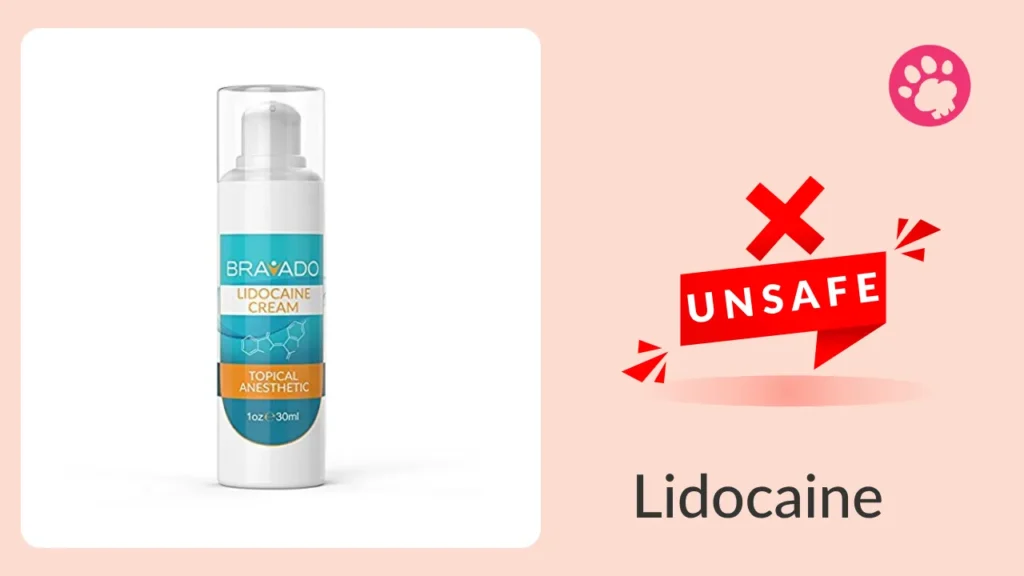
Exposure to even small amounts of Lidocaine can lead to:
Toxicity
Symptoms may include vomiting, drooling, seizures, or difficulty breathing.
Cardiac effects
Lidocaine can affect the heart, leading to arrhythmias (irregular heartbeats).
Never use human lidocaine products on your cat without a vet’s prescription. Always consult your vet for safe treatment options.
9. Fucidin
Is Fucidin good for cats?
Fucidin (fusidic acid) can be used on cats, but only if prescribed by a veterinarian. It is an antibiotic cream commonly used to treat bacterial skin infections, but it should be applied with caution because it can upset your cats stomach or lead to toxicity if used in large amounts.
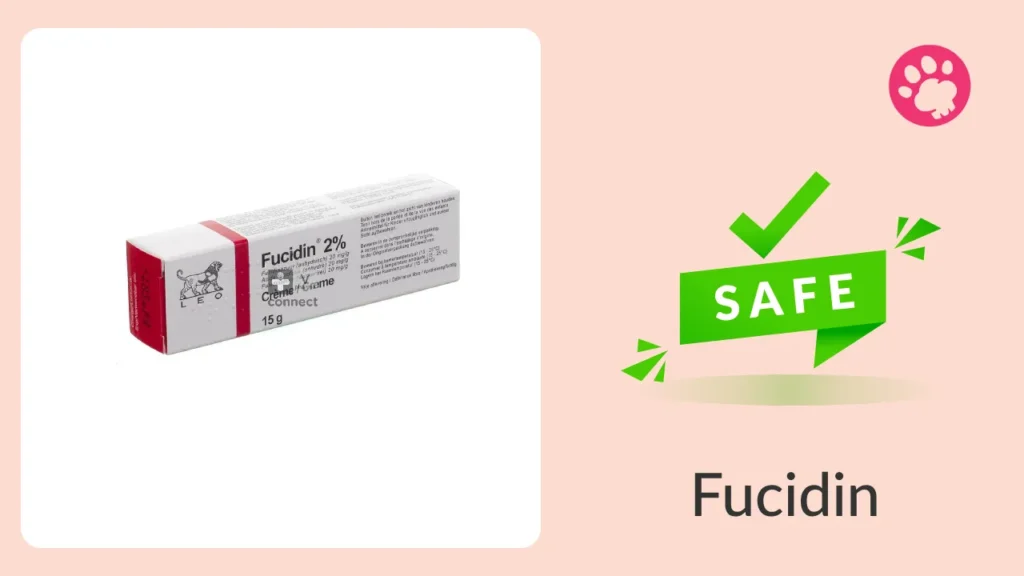
Fucidin is also only effective for bacterial infections and not for fungal, viral or other skin issues. Misuse or overuse can lead to antibiotic resistance.
For any skin issues, it’s best to consult your vet for proper diagnosis and safe treatment options.
Summary on using human topical creams on cats
Congrats, you’ve made it to the end of the article and you’re convinced to try using your human topical cream on your cat’s condition. Here’s how to safely apply topical creams on your cat:
- Clean the area: wash with lukewarm water and mild soap, then pat dry.
- Apply a thin layer: use a small amount of [medicine/cream] and apply a thin layer to the area.
- Massage gently: lightly massage to ensure absorption, avoiding too much pressure.
- Monitor: try to ensure your cat doesn’t lick the area. Use a cone if needed as ingesting large amounts can lead to stomach upset.
- Repeat: reapply 1–2 times a day until healed or as advised by your vet.
If you’re unsure or the issue doesn’t improve, it’s always a good idea to consult your vet for further guidance.





